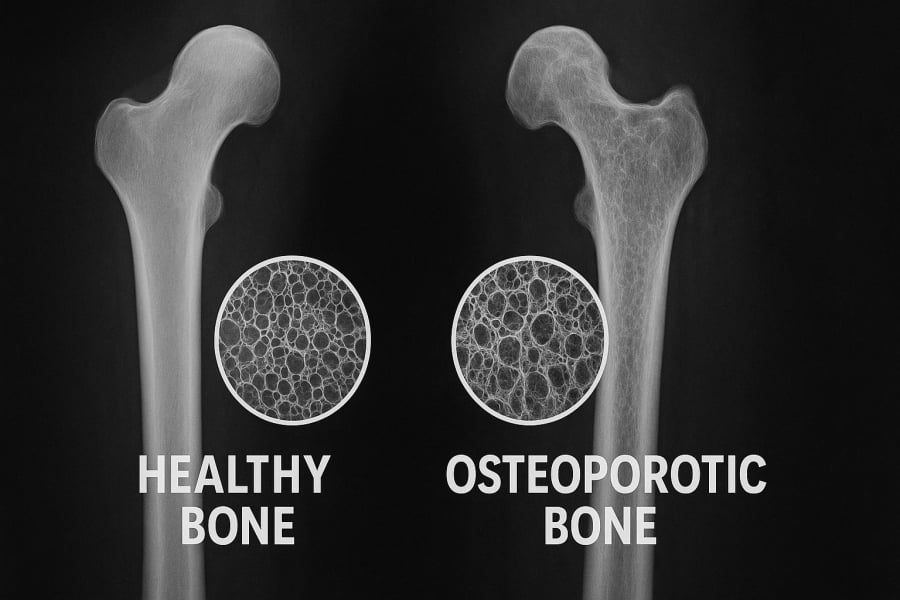Pay Attention to Your Bones, Starting Today
When it comes to bone health, many people immediately think of calcium supplements or exercise. But do we truly understand which factors are unknowingly harming our bones? In modern life, the consumption of popular beverages like carbonated soft drinks, coffee, or alcohol can be unexpected “culprits.” So, how can we protect our bones while maintaining a balanced lifestyle? Let’s explore this in detail in this article.

3 Types of Beverages to Watch Out For
Carbonated Soft Drinks: The Silent Saboteur
Carbonated soft drinks with enticing flavors have long been a favorite for many. However, few realize that the phosphoric acid and high sugar content in these drinks pose a significant threat to our bones. Research published in the Journal of Clinical Endocrinology & Metabolism reveals that phosphoric acid can reduce the body’s ability to absorb calcium while increasing its excretion through the kidneys. This leads to a mineral imbalance, making bones more susceptible to osteoporosis over time.
Master of Science and Doctor of Medicine, Nguyen Thi Minh Anh, from the National Institute of Nutrition, shares: “Adults should consume no more than one can of carbonated soft drinks per week to avoid negative effects on their skeletal system.” So, be cautious when indulging in this beverage!
Have you considered replacing carbonated soft drinks with healthier alternatives?
Coffee: Enjoy in Moderation to Support Bone Health
Coffee is a familiar beverage, especially in the morning, but overconsumption can harm your bones. Caffeine in coffee stimulates the kidneys to excrete calcium through urine, thereby reducing bone density when consumed excessively. A study by the American Journal of Clinical Nutrition indicates that women who drink more than four cups of coffee per day have a higher risk of osteoporosis compared to those who drink less. Note that plain black coffee has less impact than coffee beverages with added sugar and milk, which also carry the risk of weight gain and metabolic disorders.
Nutritionist Tran Hong Hanh advises: “Limit coffee intake to 1-2 cups per day, preferably before 3 p.m., to avoid disrupting sleep and maintaining bone health.”
Alcohol: A Dangerous Foe for Bones
Alcohol is not only detrimental to the liver and cardiovascular system, but it also directly impacts bone health. Alcohol inhibits the activity of osteoblasts, cells responsible for bone formation, while stimulating osteoclasts, cells that break down bone tissue, making bones fragile and prone to fractures. According to the World Health Organization (WHO), about 20% of osteoporosis cases in middle-aged men are linked to alcohol abuse. Prolonged alcohol consumption significantly increases the risk of bone and joint diseases.
Have you ever tried reducing alcohol intake to improve your overall health?

Recommendations and Solutions
To protect your bones, in addition to limiting the above beverages, it’s crucial to adopt a diet rich in calcium and vitamin D. Some suggestions include:
- Drink milk: Milk and dairy products like cheese and yogurt are excellent sources of calcium.
- Drink water: Staying hydrated is essential for overall health, including bone health.
- Drink natural fruit juices: Citrus juices like orange, passion fruit, and pineapple are rich in vitamin C, which aids in calcium absorption.
Additionally, incorporate physical activities such as walking, yoga, or swimming to strengthen your bones. Dr. Le Van Son, a bone and joint specialist, emphasizes: “Maintaining an active lifestyle plays a crucial role in preventing osteoporosis.”

Conclusion
In summary, carbonated soft drinks, coffee, and alcohol are the three beverages that should be consumed in moderation to maintain bone health. Small changes in daily habits, such as reducing these drinks and incorporating calcium-rich foods, can have significant benefits for your bones in the long run. Remember, your health is in your hands. If you found this article helpful, don’t hesitate to share it with your friends and family to encourage a healthier lifestyle together!





































